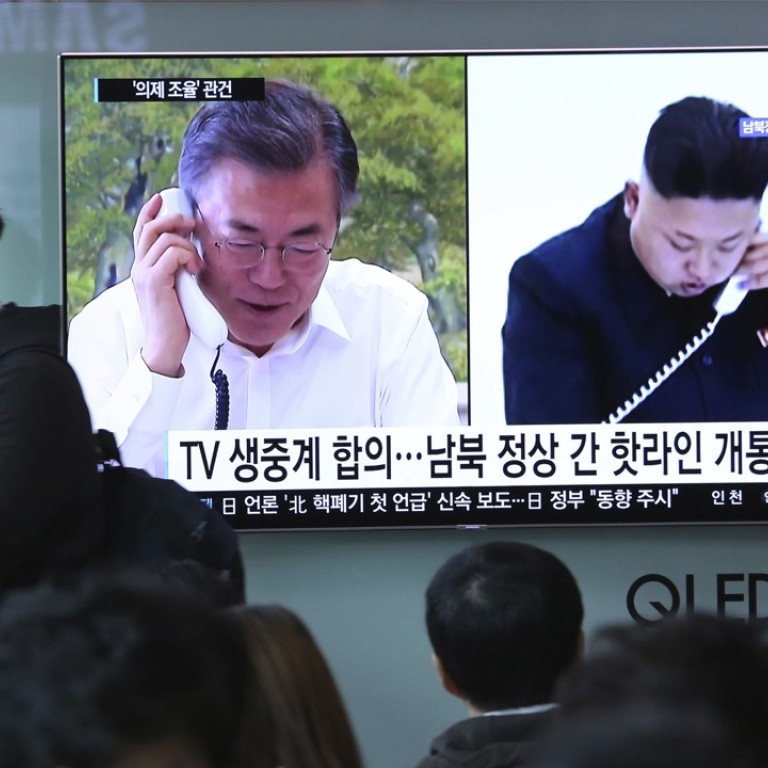
China’s influence will be key to denuclearisation of the Korean peninsula
High-level meetings including those between the leaders of many of the countries concerned offer cause for hope on an issue that threatens the stability of the region and the world
‘I don’t think we can completely trust anything North Korea says’
But what it means to those involved has yet to be articulated and until there is a definition, there can be no certainty for the hoped-for peace process.
China is eager that the talks, between Kim and Moon at the Korean truce village of Panmunjom on Friday, and the North’s leader and Trump at a location to be determined in either late May or June, will go smoothly.
Kim Jong-un to make historic border crossing for Korean peace talks
The friendly atmosphere and the positive direction gives Kim an ally and assurances for the upcoming negotiations. He needs such backing; Trump’s unpredictability was apparent on Wednesday, with him saying that if the talks were not fruitful, he would “walk out”, despite earlier contending that good relations had been forged by Pompeo.
Kim wants the Korean peninsula denuclearised, but his is the only country with a nuclear programme after the US withdrew its nuclear weapons in the 1990s. He has just declared the suspension of nuclear and missile tests. But Washington and Seoul want the North to eliminate all nuclear traces, Trump adding on social media in announcing Pompeo’s trip that “denuclearisation will be a great thing for the world, but also North Korea!”
But attaining that goal from a nation that has spent four decades developing bombs and missiles as a deterrence from the perceived threat of invasion by the US will not come easily.
The summit between the Korean leaders will take place with memories still fresh of the US-led missile strikes on Syrian targets for alleged use of chemical weapons.
North Korea ‘may give up nukes without demanding US troops leave’
But Trump at least seems determined to set the right conditions for the summit, which will make history by being the first-ever meeting of American and North Korean leaders.
Pompeo was the highest-level US official to visit the North since 2000. Pyongyang has a long record of breaking promises, so there has to be a large dose of reality. With China’s influence, though, driven by a desire for a peaceful and stable region, there is at least cause for hope.

